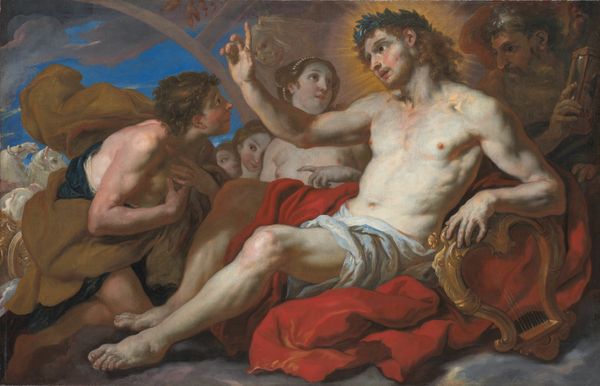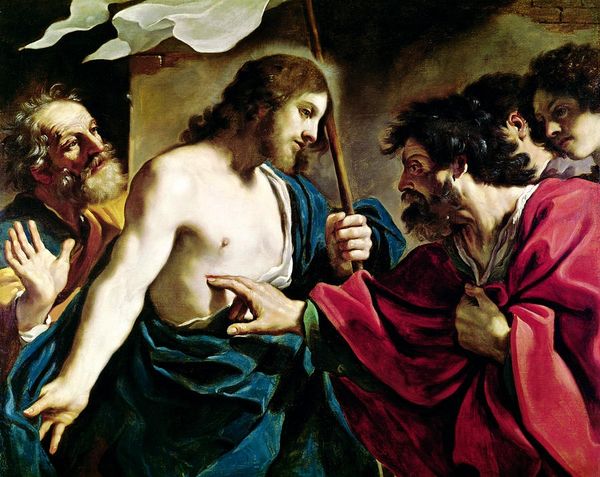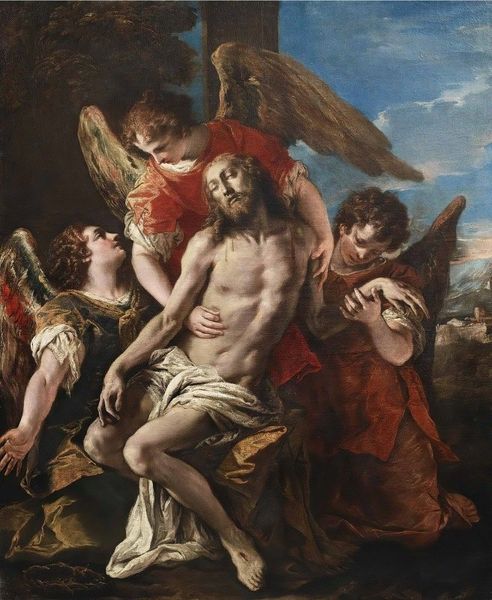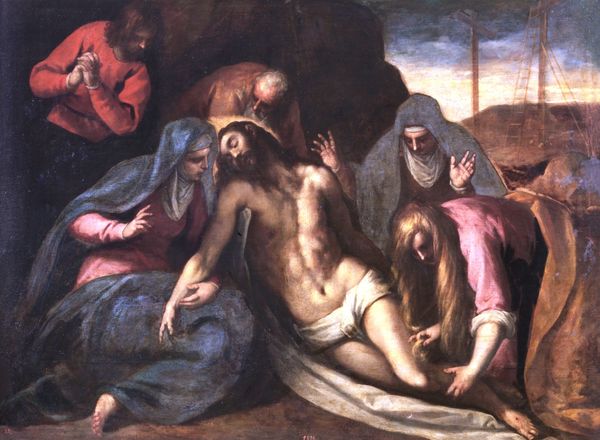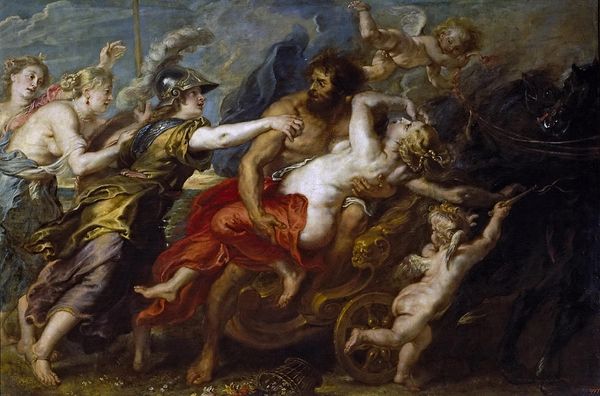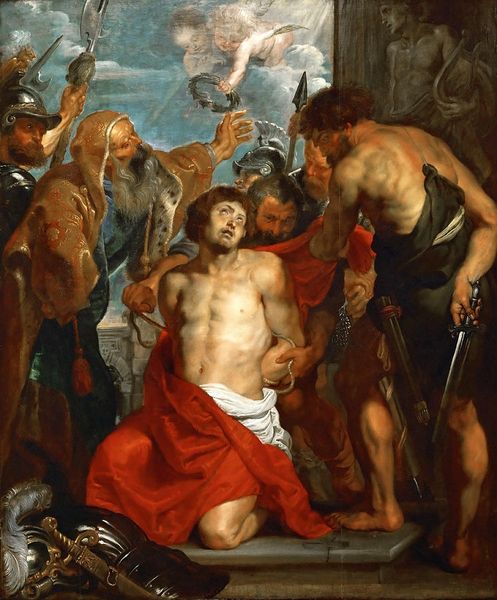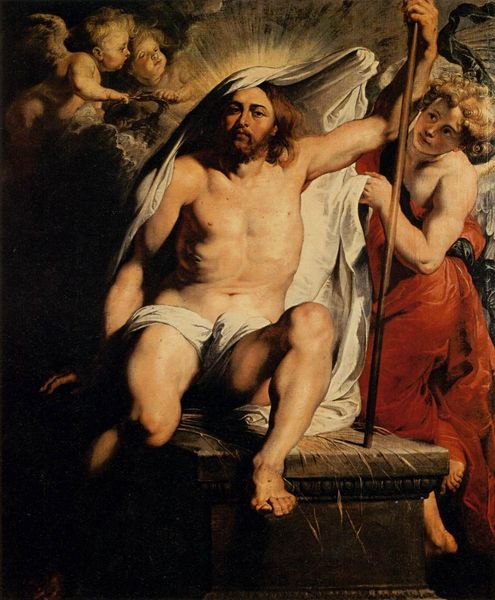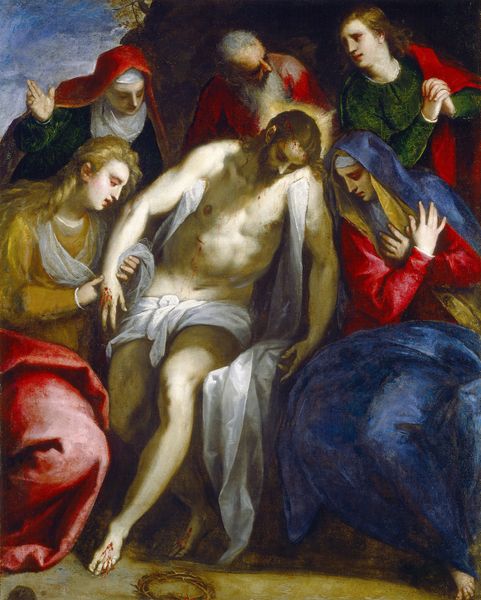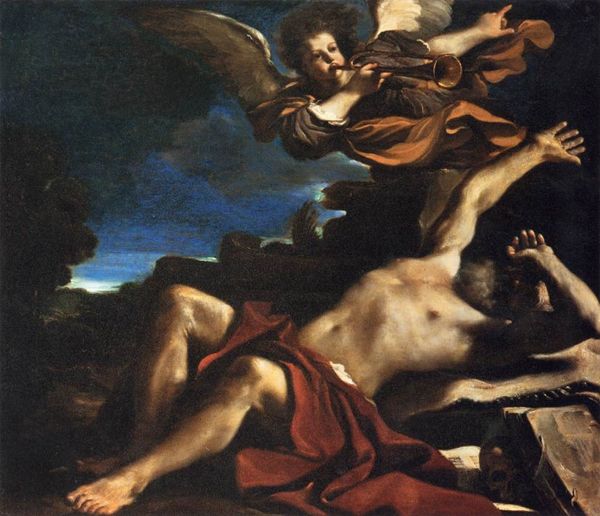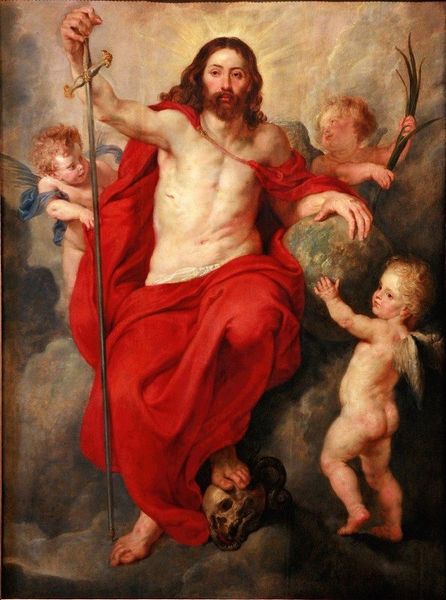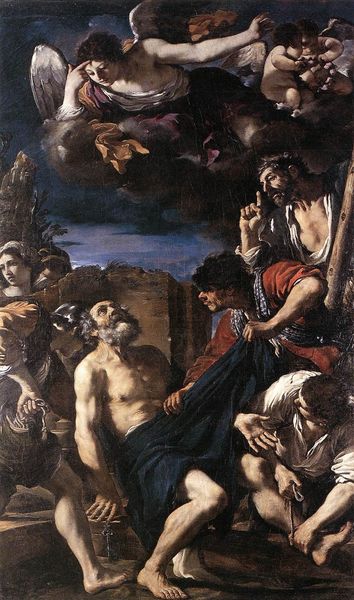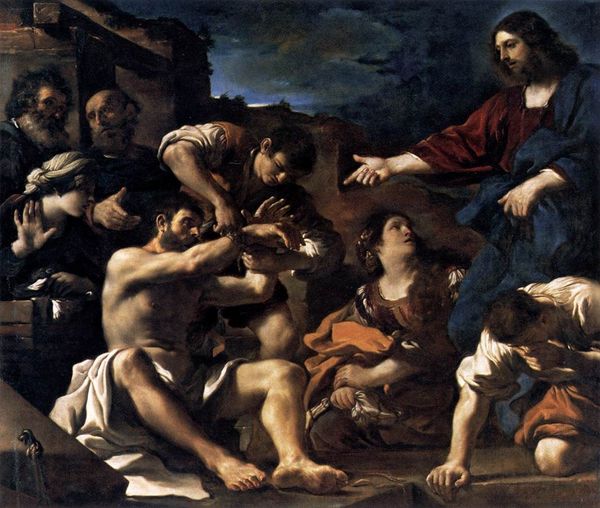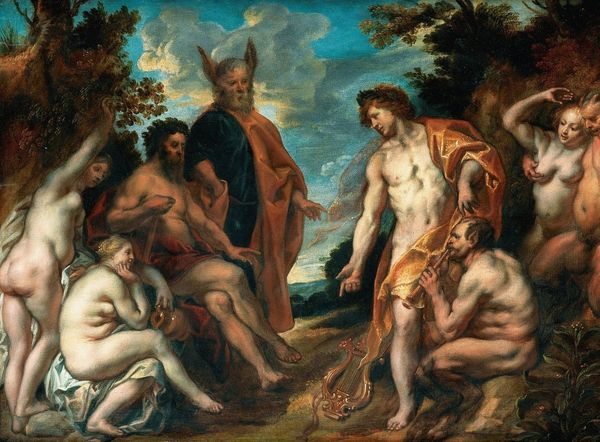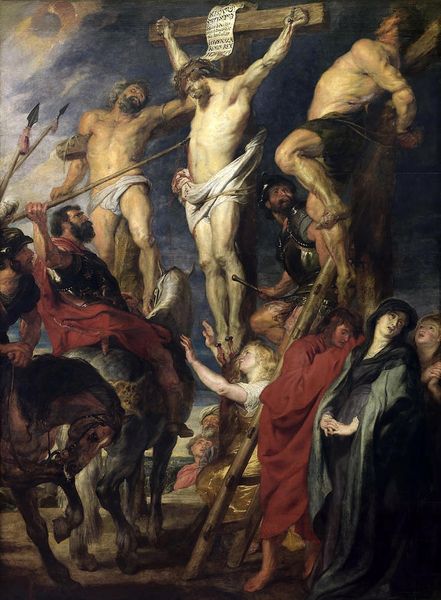
oil-paint
#
allegory
#
baroque
#
oil-paint
#
figuration
#
oil painting
#
history-painting
#
nude
Copyright: Public domain
Peter Paul Reubens created this oil on canvas depicting Christ’s triumph, an assertion of the Catholic Church’s spiritual authority. Painted in the 17th century, likely in Antwerp, the image is a powerful statement of faith but also of Counter-Reformation politics. The composition, packed with symbolism, equates the Protestant Reformation with sin and death as vanquished enemies of the Church. Note the broken scepter, snake and skull under Christ's foot, all traditional symbols for human mortality and sin. The angels' clarion calls and waving palms announce Christ's victory, not only over death but over the enemies of the Catholic Church. The painting's theatrical drama embodies the Baroque style, used to inspire devotion and awe. To understand the painting's full impact, we can look at the religious and political history of the Netherlands at the time. The institutional history of the Catholic Church itself becomes a primary source for understanding the painting's meaning.
Comments
No comments
Be the first to comment and join the conversation on the ultimate creative platform.
